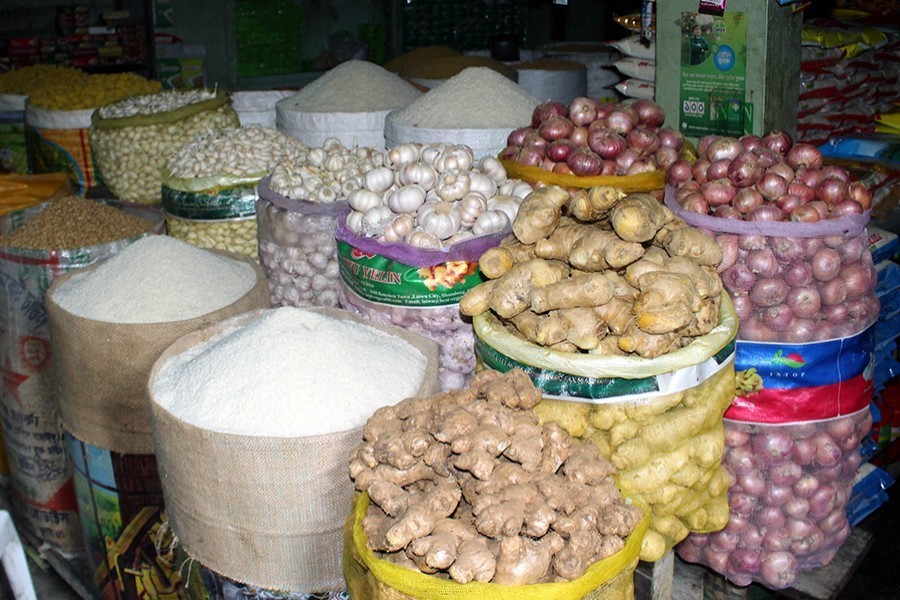
Published :
Updated :

The country is going through the most difficult phase of the pandemic. Health authorities are finding it difficult to cope with the surge of patients in district hospitals almost half of which do not have the facilities such as central oxygen plants and intensive care units (ICUs) to handle critical Covid patients.
None can predict how the pathogen will behave in the coming weeks or months. The present trend in infections and fatalities shows something more ominous. A widespread lack of adherence to health protocols such as wearing of masks, social distancing and frequent handwashing across the country coupled with the government's reactive, not proactive, approach to this enormous problem has made it hard to contain the spread of the disease.
Only one thing---vaccine--- could have saved the situation. That is also the area where the authorities have faltered---it has preferred to remain dependent on a single source--- the Serum Institute of India (SII) ---for vaccine supply. However, the disruption caused to the SII vaccine supply was unforeseen. But the delay in procurement of sufficient Covid vaccines has been taking a heavy toll. Uncertainty in vaccine procurement remains. Bangladesh is not alone to face problems in vaccine procurement. Many other countries have been also experiencing a similar situation. The situation has lately improved as some consignments of vaccines have arrived from various sources.
Amidst all the worries about Covid infections and deaths and consequent confusions surrounding 'lockdowns' and 'shutdowns', one particular problem---the rise in the price of essentials---has been hurting the poor and low-income people most.
The prices of the most daily consumables have crept up to an unreasonable level during the last couple of years. The prices of most varieties of rice are now record high. The prevailing price of the item is the highest among all the rice-producing countries in Asia. The import cost of the essential food item is now less than that of the local prices.
The trend in rice prices in the domestic market is quite intriguing. Despite good rice harvest during the last couple of seasons, the rice market remained volatile. Even import of rice at reduced duty could not rein in the soaring prices. Market experts do not have any clue to such a development.
Edible oil is another item that has witnessed a surge in prices in recent months. The item has become 60 to 70 per cent costlier over the last six months. Here, international prices have played a role.
Other daily necessities such as fish, vegetables and pulses have also witnessed a rise in their prices.
The price hike of essentials is being seen as a normal development by the men in authority. It only helps newspapers make headlines. Consumers have learnt to live with it. They grumble over it but do not have any option but to bear with it.
The Covid time is different. It has bitten into the income and savings of everybody---rich and poor. But the latter is the worst affected. The rich have resources to tide over their problems, but the same is not true with the poor.
The pandemic has deprived millions of regular income sources. Starting from day labourers down to roadside vendors, all are finding it hard to make a living. Medical emergencies have made the situation even worse for many. There are thousands of tragic stories at the individual level.
Neither the state nor the well-off section of society is showing the sympathy that the poor and low-income people deserve. Both had been generous during the early part of the pandemic. The government distributed both cash and food items though on a limited scale. Several non-governmental and philanthropic organisations also distributed food among the poor. The government has lately started the distribution of cash and food items, again on a limited scale. It is now also selling rice and flour at subsidised rates to the slum people.
Despite their inherent weaknesses, the government's social safety net programmes are proving to be helpful with the poor and disadvantaged section of people in rural areas. But the urban poor are being ignored, to a great extent. They are finding it difficult to manage two square meals a day and pass their days half-fed.
Even middle-class families are in trouble because of the price situation. The pandemic has affected their regular income flow. The unabated rise in the price of essentials has been cutting into their pockets. The severely hit were the families that had to foot the medical bills against one or two critical Covid patients.
On the price front, the government appears to be non-reactive. It has been witnessing the plight of the poor consumers from a distance. It should have intervened by now. Its intelligence agencies have alleged irregular practices by a section of millers and traders. But the food ministry, in particular, has preferred to be indifferent to such an undesirable development.
The prevailing situation calls for state intervention in stabilising the volatile rice market since the prices of this important food item matter most in the life of poor and low-income people. Besides, the authorities should expand their food assistance programme for the poor, particularly those living in urban centres.


 For all latest news, follow The Financial Express Google News channel.
For all latest news, follow The Financial Express Google News channel.